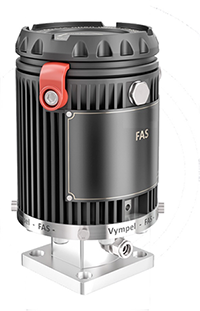"Anyone who stops improving, has stopped being good" – Robert Bosch
Published by Bella Weetch,
Editorial Assistant
Hydrocarbon Engineering,
One of the constants in life is that things change. Perhaps it would be more constructive to think about things evolving – continuously improving in response to new possibilities and new challenges. This is just as true in the natural gas industry as it is anywhere else.
There are a number of factors driving the evolution of the natural gas industry, from climate change and economic pressures to newly discovered gas fields and an ever expanding and more integrated gas transportation network. In addition, evolution in the industry has brought the introduction of new forms of natural gas, such as CNG, LNG, biogas and, most recently, the injection of hydrogen into natural gas.
More complexity and more possibilities only increase the need for accurate and reliable monitoring of the gas quality. Consequently, in the best-case scenario, these factors also drive innovation and improvement of measurement technology. Unfortunately, new solutions are not always forthcoming. The old adage 'If it isn’t broken don’t fix it' doesn’t really hold true for instruments that are being offered for situations they weren’t really designed for.

Fortunately, there are companies where innovation and development are cornerstones of the business model. A good example of such a company is the Vympel Group, and a good example of an instrument designed to meet the evolving requirements of the natural gas industry is Vympel’s FAS-HC hydrocarbon condensation temperature analyser. The hydrocarbon condensation temperature is increasingly relevant to ensure no hydrocarbon liquids precipitate out of the gas to form hydrates or destructive 'pellets' in the gas stream. Because the composition of the gas is increasingly variable, the hydrocarbon condensation temperature is subject to fluctuation. As a result, constant monitoring by hi-sensitivity instruments is essential.
Vympel’s chilled-mirror measurement cell technology provides their instruments with the highest level of sensitivity available. Among other improvements, the next-generation measurement cell in the FAS-HC extends the cooling and heating range of this technology. This makes the instrument suitable for a wider range of applications and gas mixtures – for example, biogas. The hydrocarbon profile of natural gas derived from biological sources diverges somewhat from fossil-based natural gas. As a result, more heavier hydrocarbons may be present in biogas, and the ability of an analyser to heat a condensation mirror to a higher temperature ensures that all of the heavier hydrocarbons are evaporated before a new measurement is taken. This ensures the integrity and repeatability of each measurement.
Another factor is the carbon footprint of all powered devices. The FAS-HC is small and has minimal power requirements, with a maximum of only 15 W. This means that it can easily be powered by local renewable sources such as wind or solar. In addition, the compact size and the layout of the analyser make it suitable for installation on a zero-emission/zero-loss sampling probe. As a result, this quality control measurement would not add to the problem of greenhouse gas emissions.
With regards to the injection of hydrogen in natural gas, the FAS-HC has an IIC explosion-proof rating, making it fully compatible for applications where hydrogen is present.
In order to be ready for inevitable changes, it is necessary to be committed to innovation and planning for the future. The FAS-HC is a good example of that philosophy in action.

Read the article online at: https://www.hydrocarbonengineering.com/special-reports/08102021/anyone-who-stops-improving-has-stopped-being-good-robert-bosch/
You might also like
The Hydrocarbon Engineering Podcast - Education and training for every phase of the insulating system design process
In this episode of the Hydrocarbon Engineering Podcast, Brandon Stambaugh, Owens Corning Director for Technical Services, joins us to discuss engineers’ demand for education and training to support the critical phases that affect the performance and longevity of insulating systems.
Tune in to the Hydrocarbon Engineering Podcast on your favourite podcast app today.

